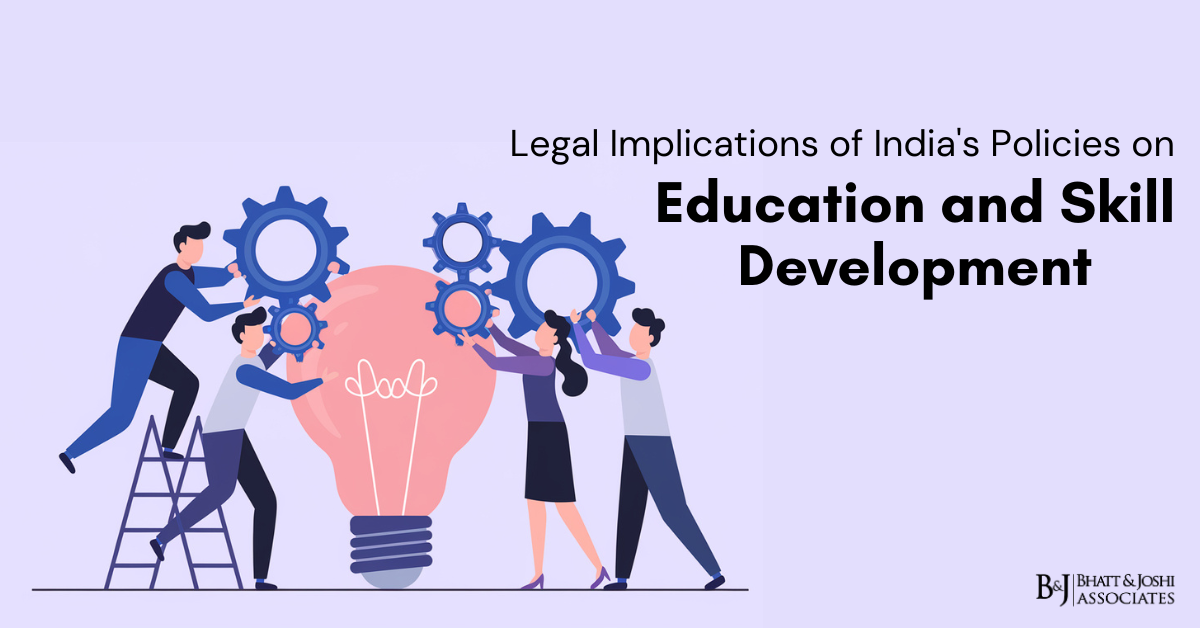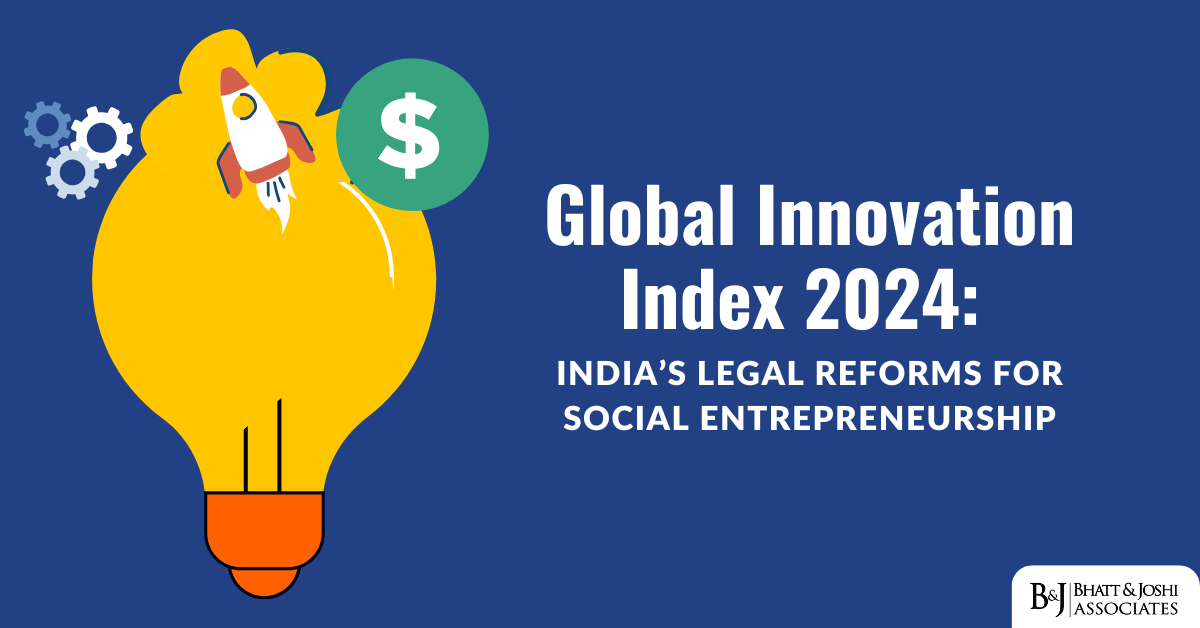Introduction
Education and skill development are foundational pillars of any nation’s progress, and in India, they have been at the center of socio-economic development initiatives. The government’s approach to education and skill development has evolved over decades, reflecting changing societal needs and global trends. This article delves into the legal framework governing education and skill development in India, the policies shaping these sectors, and the judicial pronouncements that have contributed to their evolution. Additionally, it provides a deeper exploration of the challenges, international comparisons, and future directions to offer a comprehensive understanding of this critical area.
Constitutional Framework for Education
The Constitution of India provides a robust foundation for education, underscoring its significance for individual and national development. Article 21A, introduced through the 86th Constitutional Amendment in 2002, mandates free and compulsory education for children aged six to fourteen years, recognizing it as a fundamental right. This amendment reflects the state’s commitment to ensuring that education is accessible to every child irrespective of their socio-economic background. Alongside this, Article 45 of the Directive Principles of State Policy (DPSP) emphasizes the need to provide early childhood care and education to children below the age of six years. Article 46 reinforces the objective by promoting the educational and economic interests of Scheduled Castes, Scheduled Tribes, and other weaker sections of society.
Education was initially a subject under the State List, as delineated in the Seventh Schedule of the Constitution. However, the 42nd Amendment in 1976 placed it in the Concurrent List, allowing both the Union and State governments to legislate on education. This shift marked a significant change, enabling a more coordinated and holistic approach to educational policy and governance across the country.
Legislative Framework and Policies for Education and Skill Development
India’s legislative landscape for education and skill development has evolved to address the dynamic needs of its population. Among the key legislative instruments are the Right to Education Act, the Apprenticeship Act, and various executive policies aimed at skill development.
The Right of Children to Free and Compulsory Education (RTE) Act, 2009, operationalizes Article 21A of the Constitution. It mandates free and compulsory education for children between the ages of six and fourteen years, ensuring that no child is deprived of education due to economic constraints. The Act prescribes norms for schools, including student-teacher ratios, infrastructure requirements, and pedagogical methods. By emphasizing inclusivity, the RTE Act aims to eliminate discrimination based on caste, gender, or socio-economic status. However, its implementation has faced challenges, particularly in rural and underprivileged areas, where infrastructural deficits and teacher shortages persist.
The National Education Policy (NEP) 2020 represents a transformative vision for education in India. Although it is not a statutory document, the NEP lays down comprehensive guidelines to revamp the educational system. It proposes a new curricular structure, the 5+3+3+4 system, emphasizing foundational literacy and numeracy in the early years and introducing vocational education and life skills training. It also underscores the integration of technology in education to bridge the digital divide and enhance learning outcomes.
Skill development is an integral aspect of India’s education policy framework, governed by instruments like the Apprenticeship Act, 1961. This Act seeks to create a symbiotic relationship between industry and education, offering practical training to enhance employability. The government’s flagship initiatives such as the Skill India Mission and Pradhan Mantri Kaushal Vikas Yojana (PMKVY) aim to address skill gaps in the workforce. These programs provide short-term training and certification aligned with the National Skill Qualification Framework (NSQF), fostering standardization and quality in skill development.
Judicial Interpretations and Key Judgments
The judiciary has played a pivotal role in shaping the legal landscape of education and skill development in India. Through landmark judgments, the courts have clarified and expanded the scope of fundamental rights and government obligations.
The case of Mohini Jain v. State of Karnataka (1992) was a watershed moment in recognizing education as a fundamental right under Article 21 of the Constitution. The Supreme Court’s decision underscored the importance of education as a tool for individual empowerment and societal advancement. This judgment laid the foundation for subsequent judicial interventions, including the introduction of Article 21A.
Building on this precedent, the case of Unnikrishnan JP v. State of Andhra Pradesh (1993) provided a framework for implementing free and compulsory education for children up to the age of fourteen. The court’s observations in this case significantly influenced the drafting of the RTE Act. By emphasizing the state’s responsibility to provide education, the judgment reinforced the principle of social justice enshrined in the Constitution.
The autonomy of private educational institutions has also been a subject of legal scrutiny. In T.M.A. Pai Foundation v. State of Karnataka (2002), the Supreme Court examined the rights of minority institutions under Article 30 and their role in the education sector. The judgment struck a balance between the autonomy of private institutions and the government’s regulatory interests, ensuring that access to education remains equitable and inclusive.
The issue of uniformity in educational standards across states was addressed in State of Tamil Nadu v. K. Shyam Sunder (2011). The Supreme Court emphasized that educational reforms should aim at ensuring equality and removing disparities in access and quality. This judgment underscored the importance of harmonizing state-level policies with national objectives.
Regulation of Private Institutions
Private institutions play a significant role in India’s education sector, addressing gaps in access and quality. However, their operations have often been criticized for commercialization and inequity. The RTE Act mandates private schools to reserve 25% of their seats for economically weaker sections (EWS) and disadvantaged groups. This provision was upheld by the Supreme Court in Society for Unaided Private Schools of Rajasthan v. Union of India (2012), which reinforced the importance of inclusivity in education. Despite this, the implementation of EWS reservations has faced resistance and logistical challenges, highlighting the need for robust regulatory mechanisms.
Challenges in Skill Development
While India has made significant progress in skill development, several challenges persist. The lack of comprehensive legislation addressing skill development uniformly across states results in inconsistencies. Many training programs suffer from inadequate infrastructure, poor quality standards, and limited industry participation. The Apprenticeship Act, though progressive, has faced implementation hurdles due to bureaucratic inefficiencies and limited awareness among employers.
Judicial interventions have highlighted issues of governance and accountability in skill development programs. In cases like Swaraj Abhiyan v. Union of India (2016), the courts have drawn attention to systemic inefficiencies in public welfare schemes, indirectly impacting skill development initiatives. These observations underscore the need for stronger legal and administrative frameworks to ensure the effective delivery of skill development programs.
International Obligations and Comparisons
India’s education and skill development policies are influenced by international conventions and commitments. As a signatory to the United Nations Convention on the Rights of the Child (UNCRC), India is obligated to ensure access to quality education for all children. The Sustainable Development Goals (SDGs), particularly SDG 4, aim to ensure inclusive and equitable quality education and promote lifelong learning opportunities. India’s policies align with these goals, though challenges in implementation and resource allocation persist.
Globally, countries like Germany and Singapore offer exemplary models of skill development. Germany’s dual vocational training system integrates classroom learning with practical training, fostering a seamless transition from education to employment. Singapore’s SkillsFuture initiative emphasizes lifelong learning and upskilling, supported by robust industry collaboration. India can draw lessons from these models to enhance its legal and policy frameworks for skill development.
The Way Forward for Education and Skill Development in India
Strengthening the legal framework for education and skill development in India requires addressing systemic challenges and aligning policies with global best practices. Comprehensive legislation that integrates education and skill development is essential to ensure seamless transitions from academic learning to vocational training. Regulatory bodies must be empowered to enforce standards and ensure accountability in both private and public institutions.
Policymakers should focus on leveraging technology to improve access and quality in education and skill development. Public-private partnerships can play a crucial role in addressing infrastructure deficits and fostering innovation. Moreover, aligning national policies with international commitments like the SDGs will ensure that India’s education and skill development systems are future-ready.
Judicial activism has been instrumental in shaping education policies, but excessive reliance on courts indicates systemic inefficiencies. Proactive governance, coupled with community participation, will be crucial in addressing these gaps. By prioritizing equity and inclusivity, India can build a resilient education and skill development ecosystem that empowers its citizens and drives sustainable development.
Conclusion
The legal implications of India’s policies on education and skill development are profound, influencing societal progress and economic growth. While significant strides have been made through constitutional amendments, landmark legislation, and judicial interventions, challenges in implementation and equity persist. A robust, integrated legal framework, coupled with effective governance and industry collaboration, will be crucial in realizing the transformative potential of education and skill development in India. By addressing systemic challenges and leveraging global best practices, India can ensure that its education and skill development systems are equipped to meet the demands of a rapidly changing world.














